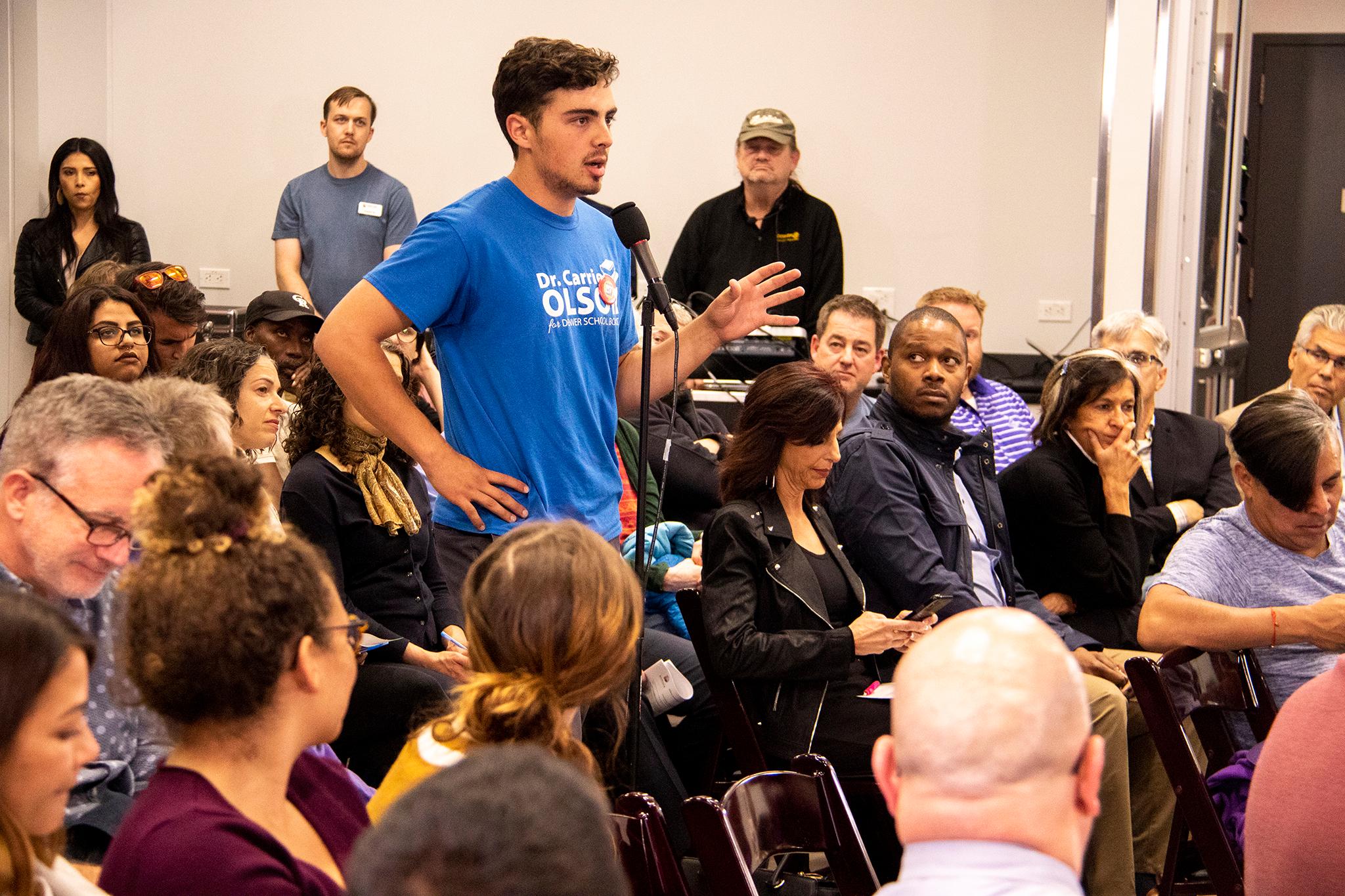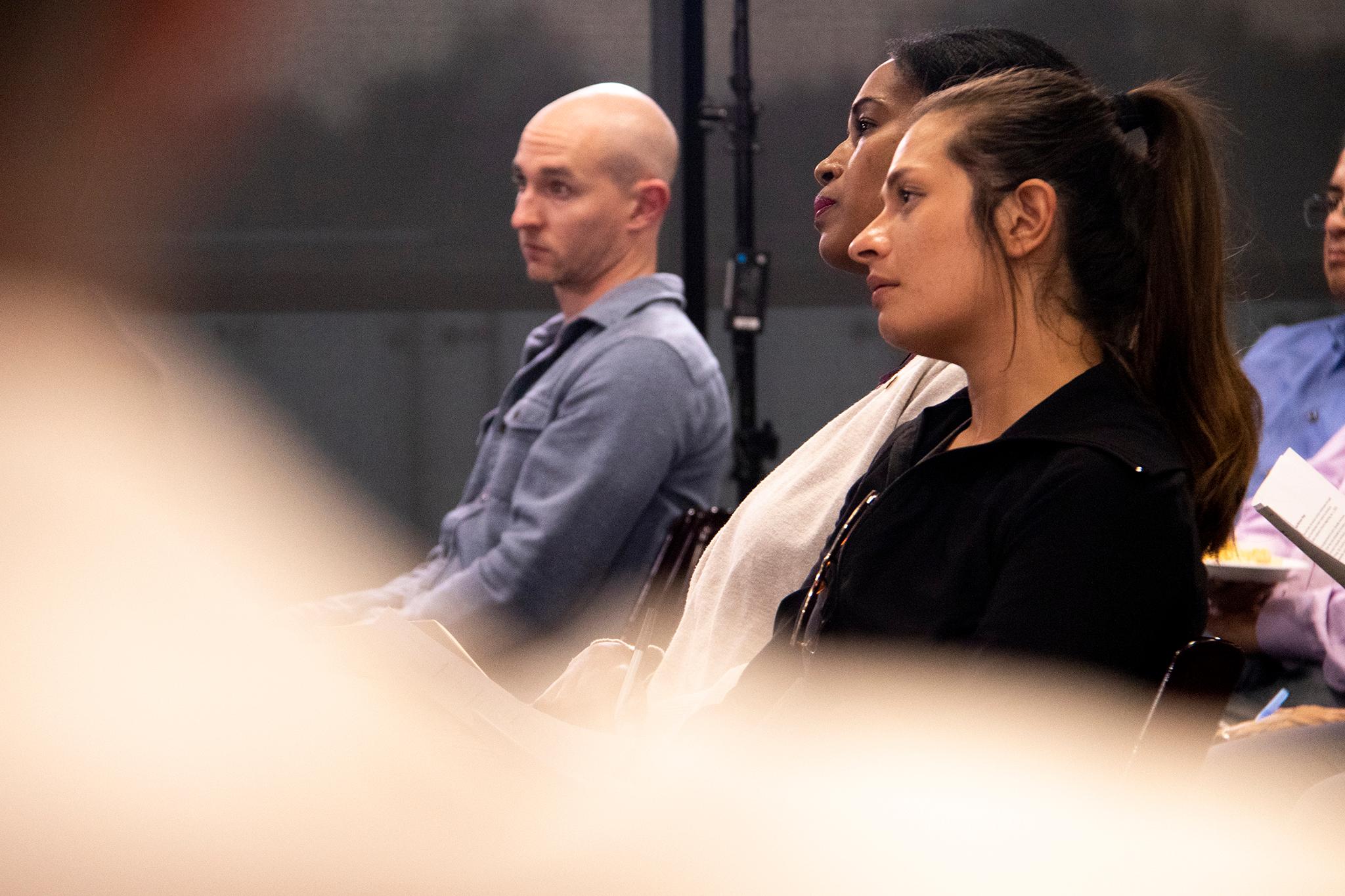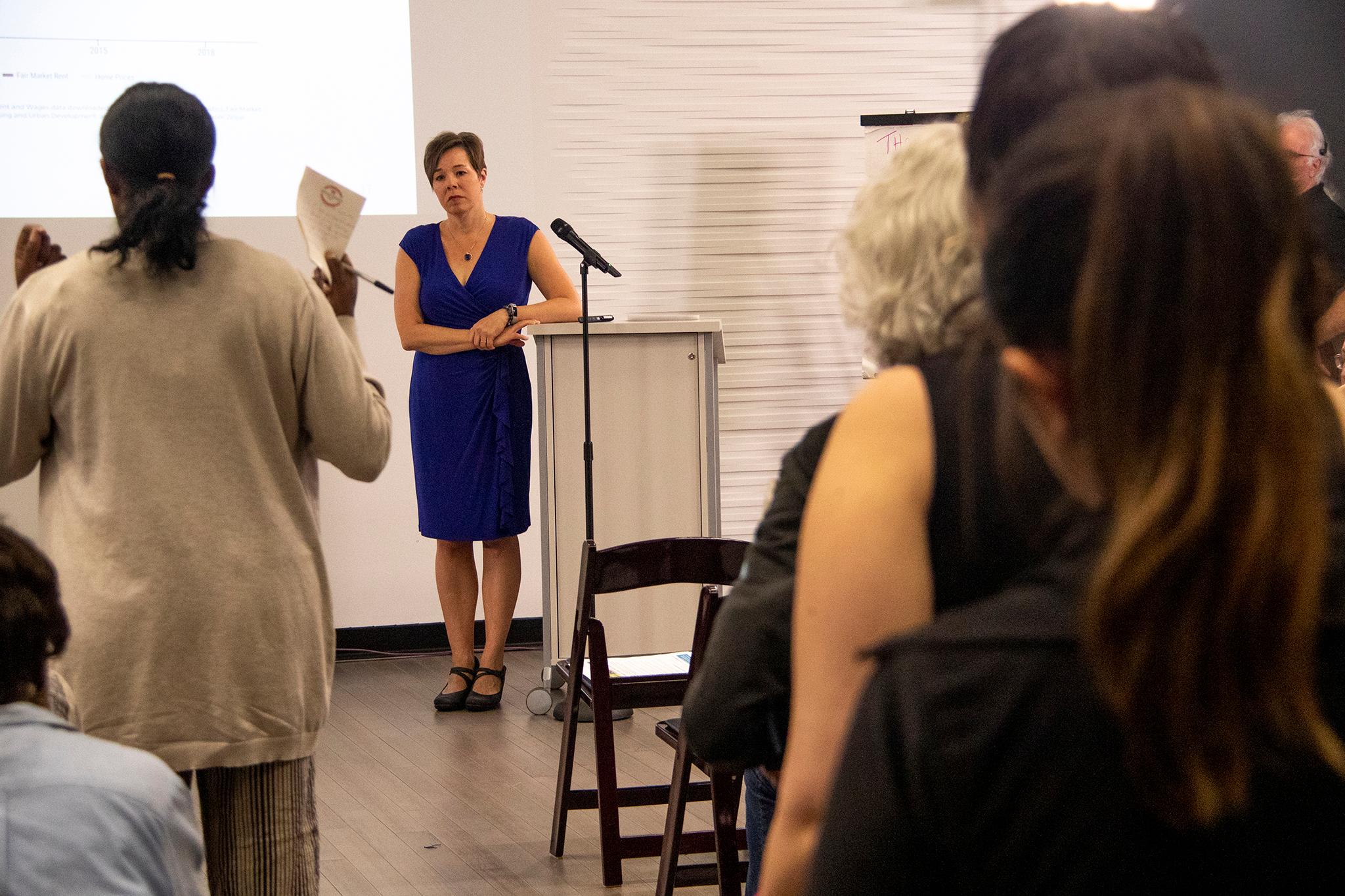Denverites crowded into a room at the Carla Madison Recreation Center on Wednesday night for a town hall to discuss a proposal to raise the city's minimum wage to $15 by 2021. While the restaurant industry and some small businesses have come out publicly against the wage hike, the resounding message from those at the town hall was: Raise it, and raise it more.
"The minimum wage needs to be $20 an hour," said Zach Cheikho, 20, a student at the Auraria Campus and a graduate of Denver's South High School. "People like to say that it's just entry-level jobs, but what I saw at South High School is that there are many people working to put food on the table."
In September, Denver became the first city in Colorado to begin exploring a local minimum wage with a proposal from Mayor Michael Hancock and City Councilwoman Robin Kniech to raise the minimum wage to $13.80 on Jan. 1, then to $15.87 on Jan. 1, 2021, and then pegging increases to inflation. City Council members Kniech, Chris Hinds and Paul Kashmann were in attendance Wednesday night, along with Sky Stuart, Denver's legislative director who represented the mayor's office.

For decades, local minimum wages were prohibited in Colorado, but in May, Governor Jared Polis signed House Bill 1210 giving municipalities the right to set their own minimum wages starting in 2020. The law only allows local minimum wages that exceed the state minimum wage, which is currently $11.10 per hour.
The proposal now on the table in Denver would raise the minimum wage by as much as is allowed under the new state law, which limits municipal wage hikes to yearly increases of 15 percent or $1.75 per hour, whichever is larger. After that, the minimum wage would increase at the rate of inflation as calculated by the Consumer Price Index.
While the CPI is widely used to estimate the cost of common household goods, it does not include housing costs, which continue to rise in Denver. Councilwoman Kniech paused during her presentation to acknowledge this, to which the crowd nodded furiously and yelled "no."
Councilman Hinds, who represents the 10th district in which the meeting was held, also pointed out that the audience was now seated in an area with some of the highest rents in the state.
Despite those acknowledgments, Kniech tried to steer the conversation away from housing costs, pointing out state laws that prohibit the city from taking action against rent hikes through measures like rent caps. Kniech's admonishment did little to deter the crowd, which continued to cite rising rents as one of the key reasons for a higher minimum rage.
"If your percentage doesn't match my wallet then your percentage is wrong," said Jenee Donelson in reference to the CPI. "We have to look at this holistically."
On that basis, Donelson and many others who spoke at the meeting encouraged the city government to consider continuing to raise the minimum wage by the maximum 15 percent allowed by the state law every year until it reflected the true cost of living in Denver.

While many business owners attended the meeting, few spoke. Only one coffee shop owner came up to the mic to advocate for a sales tax break for small business owners in order to defray the increased labor costs. No one from the Colorado Restaurant Association spoke at the meeting, but the group has come out against the proposal.
This was the fourth minimum wage town hall. Two others are scheduled for later this month. The city is also holding smaller meetings with special groups like nonprofits and businesses.
A recording of the whole meeting is available on the city's Facebook page.
Correction: This story has been changed to reflect that the Colorado Restaurant Association was at the meeting but did not speak.













